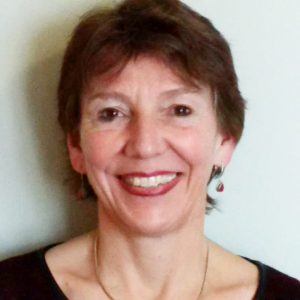Adults keen on developing scientific curiosity in others, and everyone — teenagers especially — intrigued by the universe and outer space, please read on.
At 1 p.m. Monday at the Chautauqua Women’s Club as part of the Professional Women’s Network series, science educator Michele Curtis will demonstrate how she has been creatively engaging teenagers in science and exploration “in the land of apps, tweets and Angry Birds,” where information technology reigns supreme.
Once an actuary, Curtis began teaching workshops for “Scientists in Schools” (SiS) after her third child was born. Having earned a Bachelor of Science in mathematics from McGill University, she also tutors Canadian high school students in math, covering the whole curriculum for grades nine through 12, including calculus, data management and advanced functions.
“More than anything, math teaches us how to think logically and break down the problem,” Curtis said.
As she learned from her father, it also teaches us that “for every problem there’s a solution.”
Half-day, hands-on, interactive workshops taught by ecologists, physicists, engineers and professionals from several other fields have been SiS’s solution to the problem of catalyzing sustained student interest in STEM (science, technology, engineering and math), and in environmental science and engineering. 
SiS was founded in Ontario, Canada, in 1989 and has since become its leading science education nonprofit for children from kindergarten through eighth grade. It has offices throughout the province, as well as one in southern Alberta. SiS workshops are taught in English and French.
The organization’s mission is “to ignite scientific curiosity in children so that they question intelligently; learn through discovery; connect scientific knowledge to their world; are excited about science, technology, engineering and math; and have their interest in careers in those fields.”
Curtis leads SiS workshops for sixth- through eighth-graders. One is titled “Celestial Sleuths” and the other is “Global Climate Change.” Among the other workshops she has also taught are “Air and Flight” and “Fractions in Action.”
“Activities and games are the focus,” Curtis said. “I’ve noticed that the attention span has gone down in the last five years. I have to work hard at getting their attention.”
This afternoon at the CWC House, Curtis will be presenting “a very compressed version” of “Celestial Sleuths.” She will focus on “black holes, the solar system, the international space station and what to look for in the sky this month” (including which planets), so that everyone will know how to navigate around the skies.
Curtis said she’s been fascinated by space ever since she was a kid — especially during and after the 1969 Apollo moon landing. Early on, she joined the Royal Astronomical Society of Canada, and she still has a telescope.
The purpose of Curtis’ three-hour climate change workshop for seventh- and eighth-graders is to foster ecological stewardship. She facilitates the discovery of the science behind climate change, and by charting energy flow through a biome, the exploration of its impact on the Earth. Workshop activities include calculating how choices made when students shop in a classroom market affect the environment.
According to SiS, its “investigative workshops … help make even the most reluctant learner enthusiastic.”
Its vision is for “every Canadian child to have multiple opportunities to be sparked by science during their formative elementary school years.” So far, SiS has been reaching more than 660,000 children and youth annually in more than 350 Canadian communities.




